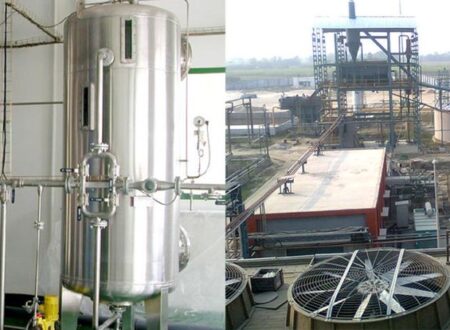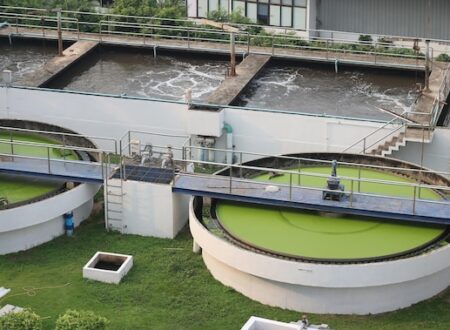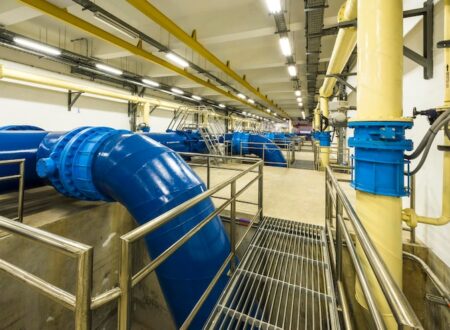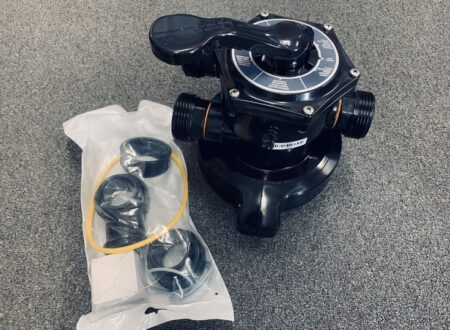Introduction
Rapid urbanization and industrial development in Noida have significantly increased the demand for proper sewage management systems. With rising population density, residential societies, commercial complexes, and industries are under increasing pressure to manage wastewater efficiently. This is where Sewage Treatment Plants (STPs) come in.
Installing a sewage treatment plant not only ensures compliance with government regulations but also helps in water conservation and environmental sustainability. If you are looking for insights on Sewage Treatment Plant installation in Noida, this detailed guide will walk you through the cost, installation process, maintenance tips, and benefits.
What is a Sewage Treatment Plant (STP)?
A Sewage Treatment Plant (STP) is a facility that treats wastewater from households, industries, or commercial establishments to remove contaminants and make the water safe for reuse or discharge.
STPs in Noida are widely used in:
- Residential societies
- Commercial complexes (malls, offices, hotels)
- Educational institutions
- Factories & industries
- Hospitals
The main objective of STPs is to ensure that untreated sewage does not pollute water bodies or soil, and instead, is treated for safe reuse in gardening, flushing, or industrial processes.
Why Do You Need a Sewage Treatment Plant in Noida?
1. Legal Compliance
The Uttar Pradesh Pollution Control Board (UPPCB) and Central Pollution Control Board (CPCB) mandate STPs for residential projects, industries, and commercial complexes. Non-compliance can lead to heavy fines or even project closure.
2. Environmental Protection
Untreated sewage contains harmful chemicals, pathogens, and solids that contaminate rivers and groundwater. Installing an STP in Noida helps reduce pollution and preserve the Yamuna River ecosystem.
3. Water Reuse
Treated water can be reused for flushing, landscaping, cooling towers, and construction work. This reduces dependency on groundwater, which is already scarce in Noida.
4. Cost Savings
Reusing treated wastewater lowers water bills and reduces water tanker dependency, especially in large residential or commercial complexes.
5. Corporate Responsibility
For industries, having a sewage treatment plant in place enhances their corporate social responsibility (CSR) image and builds trust with clients and stakeholders.
Process of Sewage Treatment Plant Installation in Noida
Step 1: Site Survey and Requirement Analysis
- Engineers conduct a site inspection.
- Assess sewage load, population size, and water consumption.
- Select capacity (e.g., 50 KLD, 100 KLD, 500 KLD, etc.).
Step 2: Design and Planning
- Hydraulic and process design of STP.
- Decide type of technology (MBR, MBBR, SBR, Activated Sludge Process, etc.).
- Prepare layout and civil work requirements.
Step 3: Approvals and Permissions
- Obtain necessary approvals from UPPCB and local authorities.
- Submit design documents and environmental compliance reports.
Step 4: Civil Construction Work
- Excavation and foundation work.
- Construction of tanks (equalization, aeration, sedimentation, sludge drying beds, etc.).
Step 5: Mechanical & Electrical Installation
- Installation of pumps, blowers, diffusers, and screens.
- Fitting of aeration systems and pipelines.
- Electrical control panel setup.
Step 6: STP Plant Machinery Installation
- Installation of biological treatment system (MBBR media, membranes, or sludge system).
- Final integration of equipment with tanks.
Step 7: Testing and Commissioning
- Trial runs with actual sewage load.
- Adjust aeration levels, sludge recycling, and chemical dosing.
- Ensure treated water meets CPCB standards.
Step 8: Handing Over & Training
- The plant is handed over to the client.
- Staff training for daily operation and maintenance.
Cost of Sewage Treatment Plant Installation in Noida
The cost of STP installation in Noida depends on several factors:
Factors Affecting Cost:
- Capacity – Measured in KLD (Kilo Litres per Day).
- 50 KLD to 1000+ KLD capacity plants.
- Technology Used – MBBR, SBR, MBR, or ASP.
- Quality of Materials & Equipment – Pumps, blowers, tanks, and diffusers.
- Civil Work – Excavation, tank construction, foundation.
- Automation Level – Manual, semi-automatic, or fully automatic systems.
Approximate Cost Range in Noida:
- 50 KLD STP → ₹12 – ₹18 Lakhs
- 100 KLD STP → ₹20 – ₹30 Lakhs
- 500 KLD STP → ₹90 Lakhs – ₹1.5 Crore
- 1000 KLD & above → ₹2 Crore+
⚠️ Note: Costs vary based on site conditions, customization, and chosen technology.
Maintenance Tips for Sewage Treatment Plants in Noida
Proper maintenance is crucial for long-term performance and compliance. Here are essential tips:
1. Daily Monitoring
- Check inflow and outflow quality.
- Monitor turbidity, pH, and dissolved oxygen levels.
2. Sludge Management
- Regularly remove sludge from sedimentation tanks.
- Prevent excess sludge buildup to avoid system failure.
3. Equipment Servicing
- Service blowers, pumps, and motors periodically.
- Replace worn-out diffusers and bearings.
4. Chemical Dosing
- Use proper chlorine dosing for disinfection.
- Ensure correct chemical usage to maintain water quality.
5. Energy Optimization
- Install energy-efficient blowers.
- Operate plants during off-peak electricity hours when possible.
6. Compliance Testing
- Conduct regular water testing in authorized labs.
- Maintain logbooks for audits by UPPCB/CPCB.
Common Challenges in STP Installation & How to Overcome Them
1. Space Constraints
- Use compact STP designs like MBR or MBBR.
- Opt for underground or modular units.
2. Odour Issues
- Install odor control systems.
- Ensure proper ventilation.
3. High Power Consumption
- Choose energy-efficient aeration systems.
- Use solar-powered solutions if feasible.
4. Untrained Staff
- Regular training programs for operators.
- Automate processes to reduce human error.
5. Initial High Cost
- Consider STPs as a long-term investment.
- Save money through water reuse and reduced penalties.
Benefits of Installing an STP in Noida
- Compliance with UPPCB & CPCB guidelines
- Reduced water bills due to reuse
- Eco-friendly waste management
- Better hygiene & sanitation in residential societies
- Sustainability & CSR compliance for industries
- Long-term financial savings
How to Choose the Right STP Manufacturer in Noida
When selecting a company for Sewage Treatment Plant installation in Noida, consider:
- Experience in the water treatment industry.
- Compliance with CPCB/UPPCB standards.
- Proven track record of projects in residential & industrial sectors.
- After-sales support & AMC services.
- Ability to customize design as per site conditions.:
FAQs
1. What is the cost of installing a sewage treatment plant in Noida?
The cost of installing an STP in Noida depends on its capacity, technology, and site conditions. On average, a 50 KLD STP may cost ₹12–18 lakhs, while larger plants like 500 KLD may cost ₹90 lakhs–₹1.5 crore.
2. Which is the best sewage treatment plant technology for Noida?
The most widely used technologies in Noida are MBBR (Moving Bed Biofilm Reactor), SBR (Sequencing Batch Reactor), MBR (Membrane Bioreactor), and ASP (Activated Sludge Process). The best option depends on sewage load, space availability, and budget.
3. How long does it take to install a sewage treatment plant?
On average, STP installation in Noida takes 3–6 months, including design, civil work, equipment installation, and commissioning. However, modular and compact units can be installed faster.
4. What are the maintenance requirements of an STP?
STPs require daily monitoring of inflow/outflow water quality, sludge removal, blower and pump servicing, and proper chemical dosing. Regular compliance testing with UPPCB is also mandatory.
5. Can treated sewage water be reused in Noida?
Yes. Treated sewage water can be safely reused for gardening, landscaping, toilet flushing, and cooling towers. This reduces water bills and minimizes groundwater dependency.
Conclusion
Installing a Sewage Treatment Plant in Noida is not just a legal requirement but also a sustainable step towards environmental conservation. From understanding the process and cost factors to adopting the best maintenance practices, an STP ensures long-term benefits for residential societies, commercial establishments, and industries.
If you are planning an STP installation in Noida and need expert consultation, Shri Balaji Aqua is a trusted name in water and wastewater management solutions. With years of experience in designing, installing, and maintaining sewage treatment plants, they provide reliable, cost-effective, and eco-friendly solutions tailored to your needs.
Contact: +91-9711252434
Mail: admin@shribalajiaqua.com




